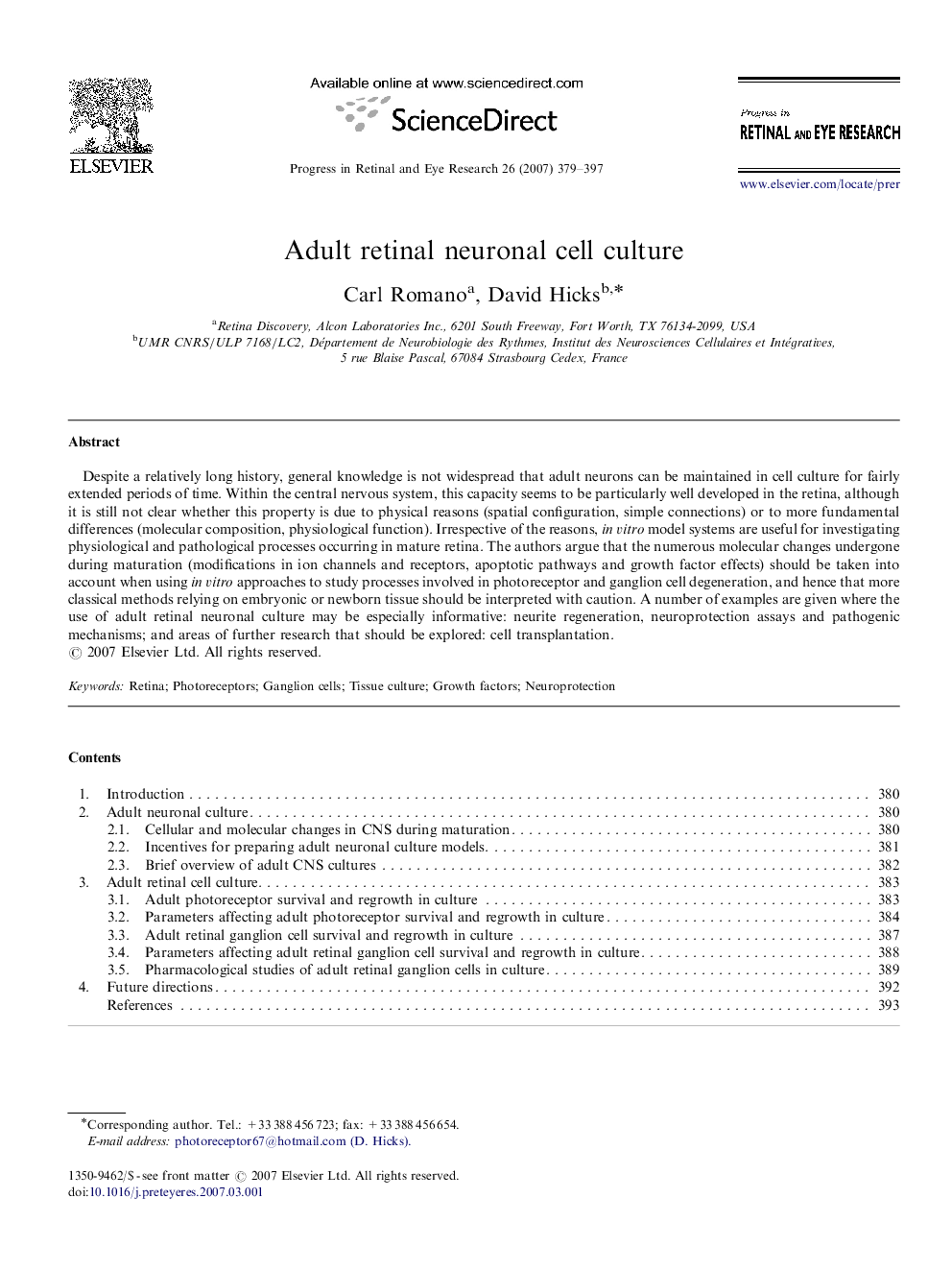| Article ID | Journal | Published Year | Pages | File Type |
|---|---|---|---|---|
| 4032200 | Progress in Retinal and Eye Research | 2007 | 19 Pages |
Despite a relatively long history, general knowledge is not widespread that adult neurons can be maintained in cell culture for fairly extended periods of time. Within the central nervous system, this capacity seems to be particularly well developed in the retina, although it is still not clear whether this property is due to physical reasons (spatial configuration, simple connections) or to more fundamental differences (molecular composition, physiological function). Irrespective of the reasons, in vitro model systems are useful for investigating physiological and pathological processes occurring in mature retina. The authors argue that the numerous molecular changes undergone during maturation (modifications in ion channels and receptors, apoptotic pathways and growth factor effects) should be taken into account when using in vitro approaches to study processes involved in photoreceptor and ganglion cell degeneration, and hence that more classical methods relying on embryonic or newborn tissue should be interpreted with caution. A number of examples are given where the use of adult retinal neuronal culture may be especially informative: neurite regeneration, neuroprotection assays and pathogenic mechanisms; and areas of further research that should be explored: cell transplantation.
